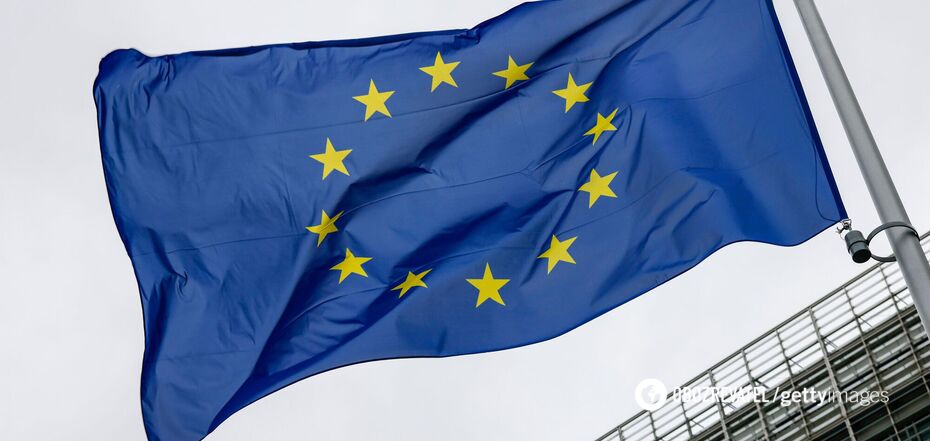News
The EU has agreed to allocate 50 billion euros to Ukraine: what conditions have been agreed upon and what awaits everyone
The European Commission has accepted the proposal to positively evaluate the Reform Plan for Ukraine for the next four years. This plan envisages the allocation of 50 billion euros in aid to Ukraine .
This is stated in the Commission's report. Funding under the Fund will help Ukraine to support its administration, pay salaries and pensions, provide basic public services, and support recovery and reconstruction while it continues to defend itself against Russian aggression.
The disbursements will be conditional on the implementation of agreed reform and investment steps set out in the annex to the Council Implementing Decision. In addition, financial support under the Ukraine Plan will be provided on condition that Ukraine continues to support and respect effective democratic mechanisms.
The Commission's assessment of the Ukraine Plan is based on the criteria set out in the Financial Facility Regulation for Ukraine. In particular, the Commission has assessed whether the Ukraine Plan is a targeted and well-balanced response to the objectives of the Instrument for Ukraine, whether it responds to the challenges of Ukraine's accession path, and whether it meets Ukraine's recovery, reconstruction and modernization needs.
What conditions must Ukraine fulfill
The reforms themselves can be divided into three sectors. Basic reforms (public administration, finance, judiciary, fight against corruption), economic reforms (markets, asset management, business environment, decentralization, human capital). The third sector, reforms, relates directly to economic sectors . Changes have been developed for industry, transportation, energy, etc. that will bring regulation closer to EU standards.
The first reform concerns public administration. Its goal is to improve the quality of public service. To do this, the government plans to revise the remuneration system again. At the beginning of the year, a model that deprived some civil servants of up to half of their salaries was already in place. The concept of the plan is to "create a fair system of remuneration." Of course, the document does not specify the level of salaries. However, it is noted that there should not be a significant difference in salaries between different government agencies, and the role of bonuses should be reduced. Another important condition is a transparent procedure for selecting specialists and digitalization of management.
"Civil service without nepotism and corruption" is how the plan describes the expected effect of the reform. It is worth noting here that not all civil servants, in their official capacity, can theoretically be involved in corruption schemes. We are talking about those civil servants who have influence on the allocation of state budgets, procurement, or are engaged in control, issuing permits, etc. The low quality of the civil service is explained, among other things, by low financial motivation.
Indicators for public administration reform:
- change the remuneration system (eliminate salary differences in different agencies, reduce seniority bonuses) - January-March 2025;
- restore competitive selection for positions, revise competitive procedures - July 2025 - September 2026;
- digitalization (a single portal for civil service vacancies and an information system for personnel management) - January-March 2026.
Officials of the Ministry of Finance, the Tax Service, the Customs Service and the Ministry of Reconstruction have to implement five reforms in public finance management. As a result, the public debt should be reduced, the budget deficit should be reduced, and the economy should be de-shadowed (desired indicators are not specified). This is to be achieved through a new management system.
Audit, strategies, elimination of tax loopholes, and a transparent system of revenue and expenditure management are all envisaged in the five reforms, the implementation of which will be monitored by 10 indicators.
The main ones are:
- National Revenue Strategy (already adopted), changes in budget planning - April-June 2024;
- public debt management strategy - October-December 2025;
- public investment management - April-June 2024;
- improvement of audit and control - October-December 2025.
The basic reforms also include changes in the judicial system. According to the plan, efforts will be focused on three components: selection of judges, prosecution reform, and digitalization of the judicial system. The prosecutor's office will be made accountable, and the courts will be given an evidence-based system. The changes should also affect ordinary Ukrainians. We are talking about the system of enforcement of court decisions: seizure of property and funds of debtors in an almost automatic mode.
- All judges must be properly vetted; the integrity declaration and verification system will be changed in September 2025;
- early prevention of bankruptcy, expansion of automatic enforcement of court decisions, automatic seizure of debtors' funds - December 2024;
- digitalization of judicial systems (audit of systems, modernization) - December 2027;
- competitive selection of prosecutors and disciplinary liability of prosecutors - March 2026.
The last reform on this list is anti-corruption. It includes 11 indicators. The effect: increased budget revenues, improved business climate, and higher investment.
As reported by OBOZ.UA, at the same time, according to Ukrainian Foreign Minister Dmytro Kuleba, Ukraine will be able to cover a significant part of the huge costs of resuming the war with Russian assets frozen in Europe. In particular, 1,700 schools, more than 1,000 kindergartens and 586 universities could be rebuilt with Russian assets stored in Germany ($6.5 billion), Austria ($1.8 billion), Ireland ($2 billion) and Poland ($1.13 billion).
Only verified information is available on the OBOZ.UA Telegram channel and Viber. Do not fall for fakes!



























